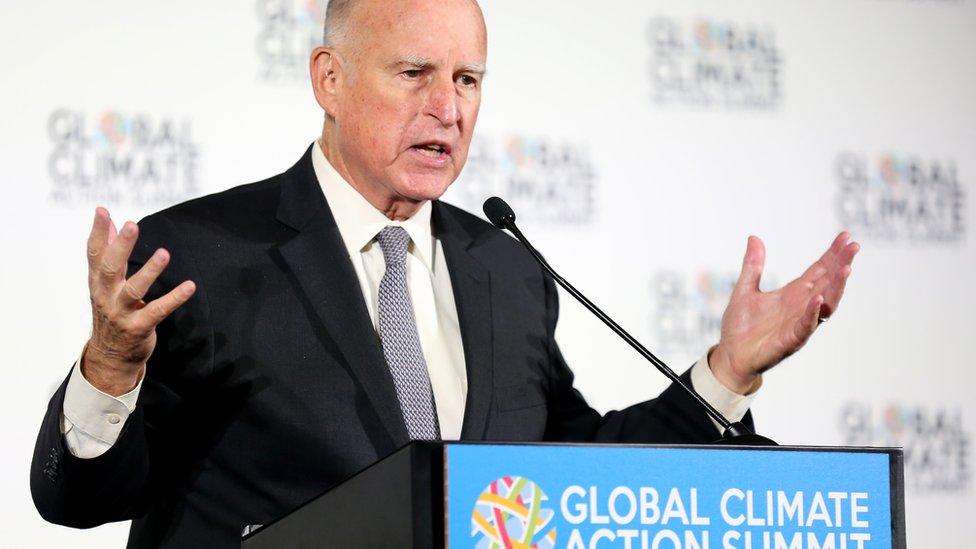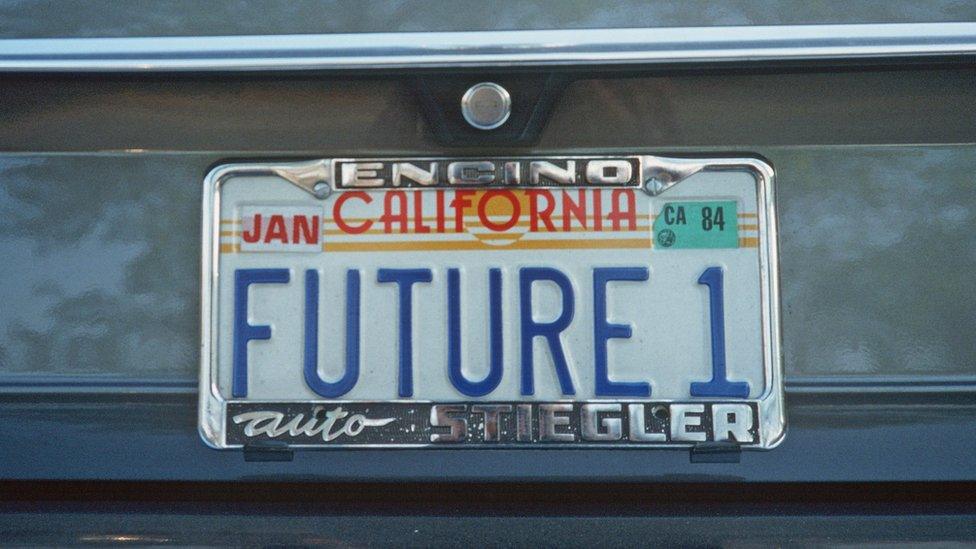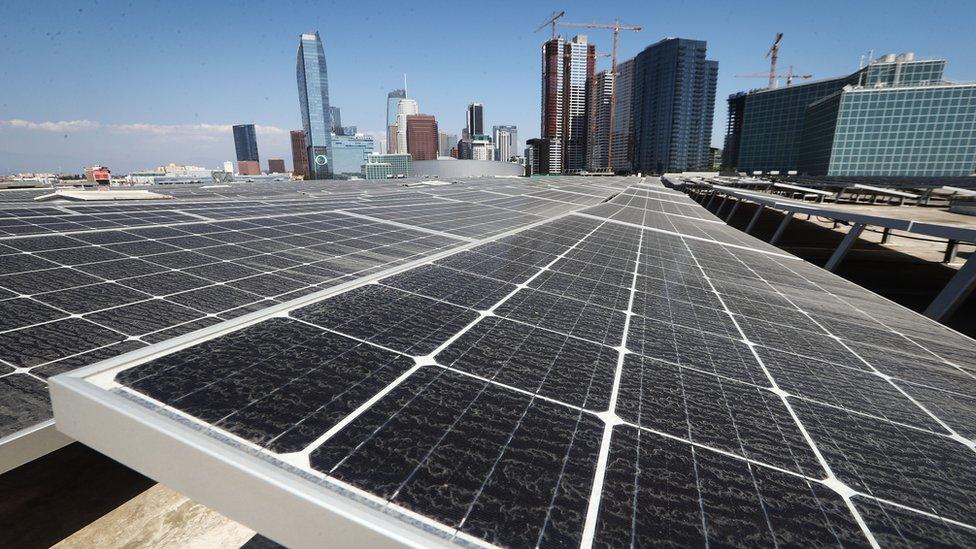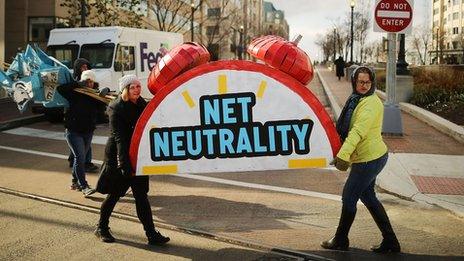How California is changing the US
- Published

A wave of new laws in California is shaping national debate.
In privacy law, minimum wage and other ways, California is shaping national debate.
The US, long a laggard when it comes to online privacy, is finally taking a serious look at creating national rules to protect consumer data.
But the impetus driving the talks in Washington isn't what you might think.
Yes, lawmakers are responding to an outcry over the exposure of information held by giants such as Facebook, Google and Equifax.
They are also looking over their shoulders at Europe, where a new privacy law went into effect in May.
But there's another, bigger factor pushing people to the table - California.
In June, the Golden State passed a sweeping privacy law, which gave consumers the right to sue over data breaches, among other changes.
Now, worried that other states will follow suit, companies and some politicians that opposed previous regulatory efforts have come out in favour of national rules.
And data privacy is not the the only area where California is driving the national debate.
In recent years, the state has passed a slew of progressive laws concerning everything from marijuana to the minimum wage, inspiring lawmakers in other states.
Frederick Boehmke, a professor of political science at the University of Iowa, has studied the adoption of more than 700 policies across the states over many decades.
He says California stands out, both for its willingness to adopt new ideas and for its influence over other states. That role has also increased over time.
"It's pretty clearly the overall leader," he says. "They are shaping the national agenda."

California Governor Jerry Brown has made climate policies a signature issue, saying California is not "turning back"
The Golden State has a long history of presenting Americans with an alternative path.
In the 19th Century, the state beckoned East Coast strivers with the promise of easy gold and fertile farmland.
In the 20th, it became a haven for hippies.
In the age of Donald Trump, California's Democratic leaders have become even more outspoken about the ways their state is distinct, declaring it the "state of resistance".
The state's attorney general - formerly a top Democrat in Congress - has filed more than 40 lawsuits against the federal government, over matters that range from car emissions rules to a question about immigration status on the US census.
The fights have drawn comparisons to the frequent battles between Republican states such as Texas and the White House during the Obama administration.
But unlike many more conservative states, California isn't just reacting against the federal government, Professor Boehmke says. It's also developing new ideas.
In 2018 alone, California took action on contentious issues such as net neutrality, renewable energy, cash bail, and the representation of women on company boards, in addition to data privacy.
Even when California is not the first to take action, its large population and economy - the fifth largest in the world - guarantees people will pay attention.
Edgar Ruiz is director of the 13-state western region for the Conference of State Governments, which organises conferences and training for state legislators.
On data privacy and other issues, "I would expect a lot of states to be looking at what California did," he says.

A wave of new laws in California is shaping national debate
Of course, conservatives have not been willing to let the state go its own way without a fight.
The White House has taken California to court over its net neutrality law and rules that limit cooperation with federal immigration authorities - what Mr Trump called "ridiculous laws".
Officials also want to strip California of a special waiver that allows it to set its own air quality standards.
When it comes to data privacy, companies are also urging the White House and Congress to support federal rules that would override state laws like California's, which goes into effect in 2020.
They argue a patchwork of local laws would be difficult and costly for companies, especially smaller ones, to navigate.
Consumer advocates say they are worried about rules that would prevent states like California from setting a higher bar.
Analysts expect the outcome of next month's congressional elections to shape how tough Congress decides to be, with action unlikely before next year.
Still, the change in tone is marked, says Michelle Richardson, director of the data and privacy project at the Center for Democracy & Technology in Washington.
"California is the difference," she says.

California is embracing progressive policies. Does it preview the future of America?
Manuel Pastor, a professor of sociology at the University of Southern California, is optimistic that the US will eventually follow California's lead more broadly.
He notes that California exported conservative policies in the 1970s and 1990s, as the state approved tax cuts and anti-immigrant laws similar to those embraced by Donald Trump and parts of the US today.
In California, as in Washington, the measures were prompted by anxiety over an increasingly diverse population and the shift from a manufacturing to high tech economy.
Now, he argues, California offers a preview of where the US might be headed as people adjust to the changes.
"It's hard for me not to think of California as demographically, economically and politically, at least one significant possibility for the future of America," he says.
All sorts of things had to happen for California before progressives started to cement their gains - not least several state-wide political reforms, he adds.
And the state has plenty of problems, including high housing costs.
Still, he says, "If you think about where the future is, is it West Virginia? Or is it California?"
- Published10 September 2018

- Published11 June 2018

- Published29 August 2018
